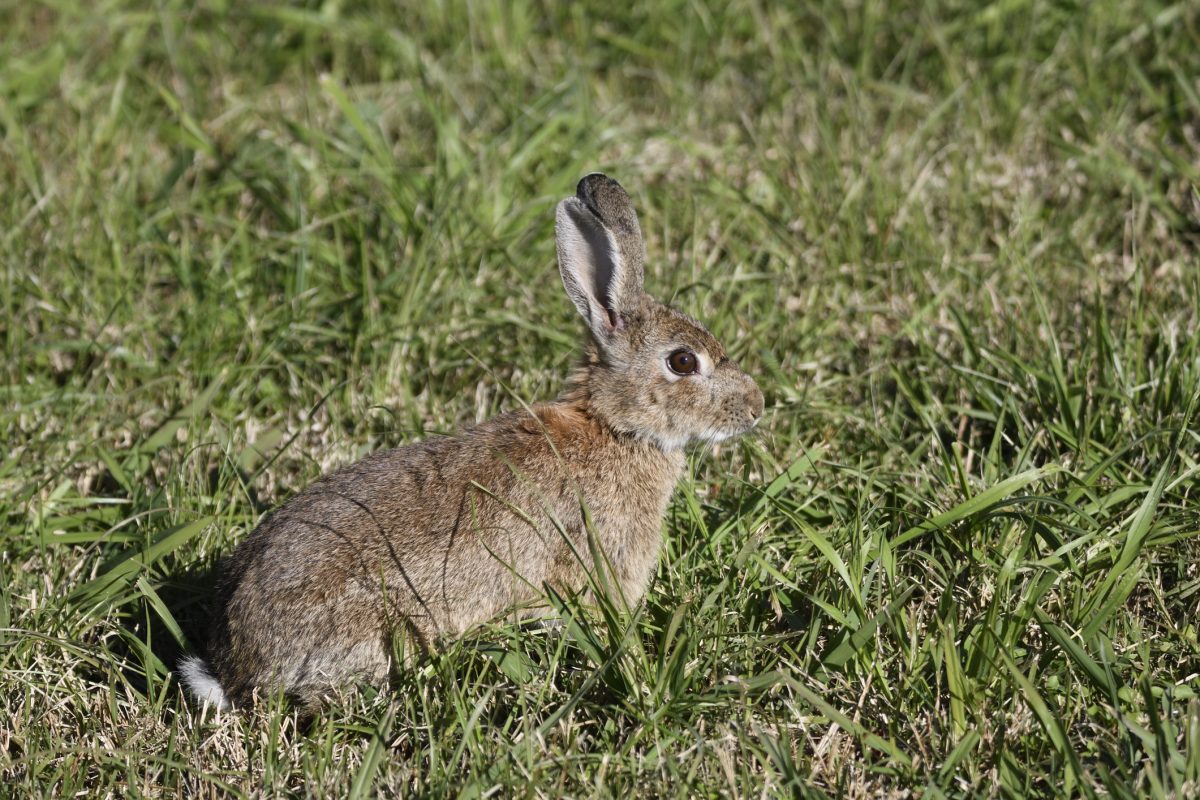
A baby feral European rabbit. Photo: David Cunningham.
Eurobodalla Shire Council’s draft policy for keeping animals has caused a stir on social media due to a clause that sets the maximum number of rabbits allowed on a property at one.
Rabbits are social creatures. According to the Rabbit Awareness Action Group, like many ”prey” animals, rabbits have evolved to live in groups for safety. Having more ears, eyes and noses around to detect danger improves their chances of survival and helps them feel safer.
Studies have shown that rabbits value the companionship of their own kind as much as they do food. Rabbits that live together also show fewer problem behaviours.
While the number of rabbits allowed to be kept is limited to one, residents may have two ferrets on their property. Rabbits are the natural prey of ferrets, and so-called ”ferreting” is a traditional way of catching rabbits.
The draft policy is silent on the number of mice, hamsters and guinea pigs that residents may have.
The draft Local Orders Policy – Keeping of Animals was on exhibition until 29 August and submissions close at 5 pm on 18 September.
The bunny lovers missed two key points in the draft policy.
First, there are no restrictions on the number of birds and animals that can be kept on premises in the shire in normal circumstances. The restrictions in the policy apply only when a legitimate problem has been identified.
The second point is that the council has had a policy on keeping animals since 2006. In 2017, the fourth version of the policy was refined to focus on circumstances whereby an order may be made, including the number and conditions of animals to be kept at a premises.
The restriction on rabbit numbers is therefore not a new one. It is currently in force.

The restriction on rabbit numbers is not a new one. Photo: Region.
In a statement, the council said the rule allowing one rabbit per premises was a direct copy of its previous policy.
“It wasn’t introduced as a new measure,” the council said. “The primary goal of this rule is to prevent irresponsible breeding and dumping of rabbits, which poses a significant ecological threat to our region.”
The council’s invasive species supervisor Paul Martin said escaped domestic bunnies vaccinated for Rabbit Haemorrhagic Disease (RHD) ended up mixing with the wild population, which reduced the efficacy of RHD-based control.
“The significant number of ‘wild’ black rabbits in our urban suburbs are all clearly from escaped or released pets,” Mr Martin said.
While there is no specific regulation under the NSW Biosecurity Act 2015 that covers the keeping of pet rabbits, the council said it was worth noting it was illegal in Queensland under its Biosecurity Act.
“We encourage anyone concerned with the policy regarding rabbits, or any other animals, to make a submission about the policy,” the council said.
The rules for different animals are based on the risks they pose to public safety, the environment, biosecurity and high-value assets, such as gardens.
The council said ferrets were regulated under the NSW Biosecurity Act 2015, which classified them as a notifiable pest, and their keeping was subject to specific conditions.
The policy said rabbits should be desexed before five months of age, while owners of ferrets are encouraged to have them desexed.
The council said guinea pigs, hamsters and mice were not regulated in the same way because they did not pose the same level of ecological risks as rabbits did if they escaped into the wild.







